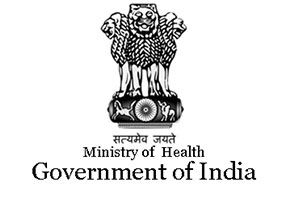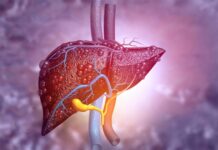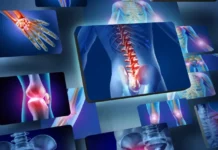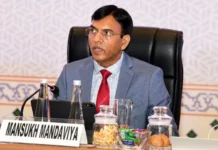NEW DELHI: The roll-out of a new National Health Policy, enactment of a mental healthcare law and the launch of a strengthened immunization program stood out for the Health Ministry in 2017.
The nod to the draft National Medical Commission Bill, 2017, by the Cabinet, towards the end of the year, despite opposition from some quarters, came as a shot in the arm for the health ministry.
The draft bill seeks to replace the existing apex medical education regulator Medical Council of India (MCI) with a new body to ensure transparency.
The new National Health Policy which addresses the current and emerging challenges necessitated by the changing socio-economic, technological and epidemiological landscape, was released after a gap of 15 years.
It aims to attain the highest possible level of health and well-being for all at all ages through a preventive and promotive healthcare and universal access to quality health services without anyone having to face financial hardship as a consequence.
The year also saw the enactment of the long-awaited HIV and AIDS (Prevention and Control) Act, 2017 that aims to end the epidemic by 2030 and safeguards the rights of people living with HIV and affected by HIV.
Besides, the government also ushered in a major shift in the treatment of tuberculosis patients by initiating a “daily drug” regimen across all states under the Revised National Tuberculosis Control Program (RNTCP), in October.
Under this policy, patients will be given fixed drug combinations (FDCs), three or four drugs in a single pill, on a daily basis instead of thrice a week (the intermittent drug regimen) and the dosage will be determined according to the patient’s body weight.
Previously, it was same for all adults. Since 1997, under the RNTCP, patients were being administered drugs thrice a week (the intermittent drug regimen).
The Mental Healthcare Bill, 2016, provides for healthcare and services to people with mental illness and also decriminalizes suicide. It was passed by the Lok Sabha in March. The Rajya Sabha had cleared it last year.
The year saw the launch of Intensified Mission Indradhanush (IMI) by Prime Minister, under the Universal Immunization Program (UIP), aimed at strengthening and widening the immunization coverage to immunize children who have either not received vaccines or are partially vaccinated.
India’s UIP is one of the largest public health programs in the world. It targets three crore pregnant women and 2.7 crore new borns annually. More than 90 lakh immunization sessions are conducted annually.
Under the program, the ministry also launched the Adult Japanese Encephalitis vaccine, Rotavirus vaccine, Measles- Rubella and Pneumococcal Vaccine.
Among other issues, the last month of the year also witnessed the launch of a country-wide initiative ‘Lakshya’ to ensure proper implementation of the existing labor room protocols in order to reduce maternal and newborn mortality.
Ensuring privacy to the mother-to-be, stressing a comfortable position during delivery, no-tolerance policy for any verbal or physical abuse of the woman and no demand for gratuitous payment by staff are some of the guidelines under the program ‘Lakshya’.
The ministry also announced transformation of sub-health centers to Health and Wellness Centers to expand the basket of services of primary care to make it comprehensive.
In order to prevent and control major non-communicable diseases, health ministry is implementing the NPCDCS in all states with the focus on strengthening infrastructure, human resource development, health promotion, early diagnosis, management and referral.
As on date, the program is under implementation in 436 districts, with setting up of NCD clinics in 435 district hospitals, and 2,145 community health centers.
The recently-launched population-based screening of diabetes, hypertension and common cancers represents a massive step in identifying and addressing the risk factors at the community level itself. More than 150 districts are being taken up during 2017-18.
For comprehensive management of lifestyle related disorders, a pilot project on ‘Integration of AYUSH with NPCDCS’ has been initiated in six districts in collaboration with the different central councils for AYUSH. -PTI







